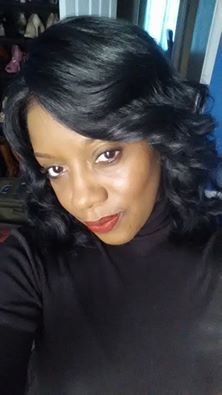Comfort Zone (Part Two)
by Ingrid Campbell White
Humans are creatures of comfort. Our comfort zone is our natural, neutral state a place where stress and anxiety are minimal, where we know what's coming next and can plan accordingly.
There's nothing wrong with being in your comfort zone, unless you get too comfortable and start holding yourself back instead of challenging yourself to learn, grow and try new things.
I absolutely loved my job. I almost felt like life wasn’t real. That’s how much I loved it. I had, flexibility I was working in afield of my dreams while working 20 hours a week for three years at National Weather Service (Aviation Weather).
Yet I just accepted a new job a few months ago. Let me elaborate. I was invited to interview for a new position at NASA. Several days later, I was offered the job. This unleashed a world of struggle inside me because I loved my current job but I felt it was time to step out my comfort zone where I became too comfortable and yearned for something else exciting.
I’ve been at this agency for a three months now, and it’s been an amazing experience. I have learned a lot and grown as a person in this exciting role that I was hired to perform.
So when I was faced with the decision of accepting a new job, I had to take a really hard look at my options. I kept thinking, Well, I have fun at work. I have a flexible schedule. I like the people I work with. There are certain perks I’d be giving up.
And then I examined my new choice: longer hours, more challenges. But there was a network to be gained. I’d been given an opportunity to expand and grow my network with people who've worked in a different part of my field (Space Technology) or another market one I’d eventually like to explore.
I weighed my options, oscillating back and forth. Emotionally, I felt inclined to remain right where I was. But rationally, I knew what I needed to do.
Being slightly uncomfortable, whether or not by choice, can push us to achieve goals we never thought we could. But it’s important to remember that we don’t need to challenge ourselves and be productive all the time. It’s good to step out of our comfort zone. But it’s also good to be able to go back in."
Trying new things can make you more creative. Creativity can be risky- when we share creative work, we open ourselves up to vulnerability and possible rejection. At the same time, risking failure increases the possibility of great creative achievement.
In becoming a person who regularly takes calculated risks, challenges yourself, and tries new things, you'll cultivate openness to experience, one of what's known as openness to experience which is a drive to explore one's inner and outer lives has been shown to be the best a creative achievements.
Embracing new challenges can help you age better. Our comfort zones tend to shrink as we get older but if we can keep expanding them, we'll open ourselves up to greater fulfillment and improved well-being as we age. In 2013 a study found that learning new and demanding life skills, while also maintaining a strong social network, can help us stay mentally sharp as we get older. The findings suggest that engagement alone is not enough. The three learning groups were pushed very hard to keep learning more and mastering more tasks and skills. Only the groups that were confronted with continuous and prolonged mental challenge improved.
“Life always begins with one step outside of your comfort zone.”
― Shannon L. Alder
Ingrid Campbell White
Humans are creatures of comfort. Our comfort zone is our natural, neutral state a place where stress and anxiety are minimal, where we know what's coming next and can plan accordingly.
There's nothing wrong with being in your comfort zone, unless you get too comfortable and start holding yourself back instead of challenging yourself to learn, grow and try new things.
I absolutely loved my job. I almost felt like life wasn’t real. That’s how much I loved it. I had, flexibility I was working in afield of my dreams while working 20 hours a week for three years at National Weather Service (Aviation Weather).
Yet I just accepted a new job a few months ago. Let me elaborate. I was invited to interview for a new position at NASA. Several days later, I was offered the job. This unleashed a world of struggle inside me because I loved my current job but I felt it was time to step out my comfort zone where I became too comfortable and yearned for something else exciting.
I’ve been at this agency for a three months now, and it’s been an amazing experience. I have learned a lot and grown as a person in this exciting role that I was hired to perform.
So when I was faced with the decision of accepting a new job, I had to take a really hard look at my options. I kept thinking, Well, I have fun at work. I have a flexible schedule. I like the people I work with. There are certain perks I’d be giving up.
And then I examined my new choice: longer hours, more challenges. But there was a network to be gained. I’d been given an opportunity to expand and grow my network with people who've worked in a different part of my field (Space Technology) or another market one I’d eventually like to explore.
I weighed my options, oscillating back and forth. Emotionally, I felt inclined to remain right where I was. But rationally, I knew what I needed to do.
Being slightly uncomfortable, whether or not by choice, can push us to achieve goals we never thought we could. But it’s important to remember that we don’t need to challenge ourselves and be productive all the time. It’s good to step out of our comfort zone. But it’s also good to be able to go back in."
Trying new things can make you more creative. Creativity can be risky- when we share creative work, we open ourselves up to vulnerability and possible rejection. At the same time, risking failure increases the possibility of great creative achievement.
In becoming a person who regularly takes calculated risks, challenges yourself, and tries new things, you'll cultivate openness to experience, one of what's known as openness to experience which is a drive to explore one's inner and outer lives has been shown to be the best a creative achievements.
Embracing new challenges can help you age better. Our comfort zones tend to shrink as we get older but if we can keep expanding them, we'll open ourselves up to greater fulfillment and improved well-being as we age. In 2013 a study found that learning new and demanding life skills, while also maintaining a strong social network, can help us stay mentally sharp as we get older. The findings suggest that engagement alone is not enough. The three learning groups were pushed very hard to keep learning more and mastering more tasks and skills. Only the groups that were confronted with continuous and prolonged mental challenge improved.
“Life always begins with one step outside of your comfort zone.”
― Shannon L. Alder
Ingrid Campbell White
~Copa


